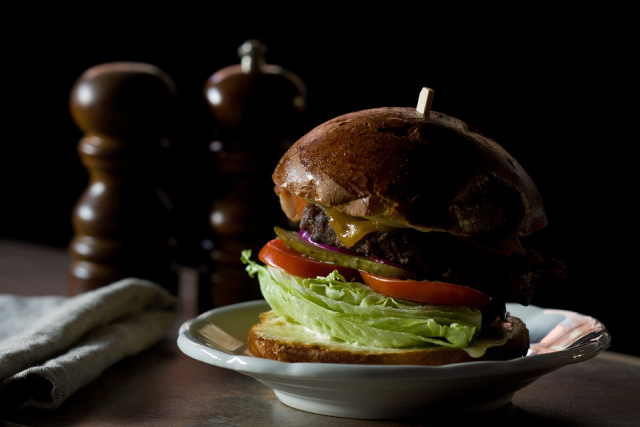
Beyond Burger came out on top of a list of plant-based burgers that smell the most like actual beef because of its ‘meaty aroma’, say scientists at Eastern Kentucky University in Richmond, Kentucky, who analyzed the aromas of the eight burger various possibilities.
The researchers examined the odors emit from eight plant-based burgers from Beyond Meat, Awesome Burger by Nestle, Impossible Foods, Incogmeato, Tyson Raised and Rooted, Dr. Praeger’s Perfect Burger, Gardein Ultimate Burger, and Emerge.
They tested the scent molecules created while the hamburgers were cooked, assessing the odors using five descriptors: grilled, fatty, buttery, sweet, and smoky.
Will you offer us a hand? Every gift, regardless of size, fuels our future.
Your critical contribution enables us to maintain our independence from shareholders or wealthy owners, allowing us to keep up reporting without bias. It means we can continue to make Jewish Business News available to everyone.
You can support us for as little as $1 via PayPal at office@jewishbusinessnews.com.
Thank you.
Beyond Meat smelled the most like a beef hamburger, meaty, fatty, and grilled meat characteristics. It was, however, noticeably different from the original thing. The second best was Awesome Burger.
A bit far but still next closest was Impossible. Though, Impossible was found to be significantly different in aroma versus the beef hamburger.
The remaining hamburgers were far off: Incogmeato, Tyson Raised and Rooted, Dr Praeger’s Perfect Burger, Gardein Ultimate Burger, and Emerge.
Plant-based meat products have been available for more than 20 years but in recent years, many food companies have done extensive research on how to make proteins from plants such as soy and pea taste more like beef.
Although raw hamburger is odorless, cooking it produces hundreds of volatile chemicals that contribute to its flavor and scent. “The issue with plant-based burgers is that the plant protein itself imparts a distinct odor,” Zyzak, an Eastern Kentucky University professor, explains.
“For example, pea protein has an aroma similar to freshly cut grass, so manufacturers must find a means to hide that aroma. Certain dishes use robust seasonings.”
Another obstacle is determining the optimal blend of vegetable oils to replicate the smell of fatty meat.
Because of the plant-base meat becomes growing market, newer companies, Newer companies, such as Impossible Foods and Beyond Meat, are competing with industry giants, such as Kellogg’s, Tyson Foods and Nestlé in this market.
According to LiLi Zyzak, Ph.D., the project’s primary investigator. “The food firms conduct fascinating research, but nothing is ever published since it is a trade secret.”
Although Zyzak acknowledges she is a “complete meat and potatoes lover,” she was curious about the performance of plant-based burgers. “We wanted to educate consumers about what’s available so they can make informed purchasing selections at the grocery store,” she explains.
The researchers examined the scent molecules created while actual hamburger and eight popular plant-based burger brands were cooked. They began by cooking the burgers and assessing their scents using five descriptors: meaty, fatty, buttery, sweet, and roasted.
A portion of the sample was directed to a sniffing port, where a person pushed a button when detected a specific odor. The subject stated, using a microphone, which of the five descriptions it smelt like (for example, “buttery”).
The remaining sample was evaluated using mass spectrometry, and the researchers established a correlation between specific components and the aroma smelled by a person at a particular time.
The researchers then isolated the chemicals that distinguished the plant-based burgers from ordinary hamburgers.
The Burger from Beyond Meat had the closest olfactory profile to that of a real hamburger.
Another brand resembled raw hamburger the most, but when cooked, it developed a yeast- or bread-like odor and contained higher quantities of methyl butanals and propionic acid.
Several of the other brands contained a high concentration of seasonings that gave off strong garlicky or barbecue-sauce-like odors.
Zyzak hopes to eventually apply what she has learned to create a blend of odor molecules that closely resemble hamburger fragrance. She is also collaborating with a new company to collect samples of cell-based meat (lab-grown meat generated in fermentation tanks by animal cells), which she intends to compare to plant-based and conventional burgers.



